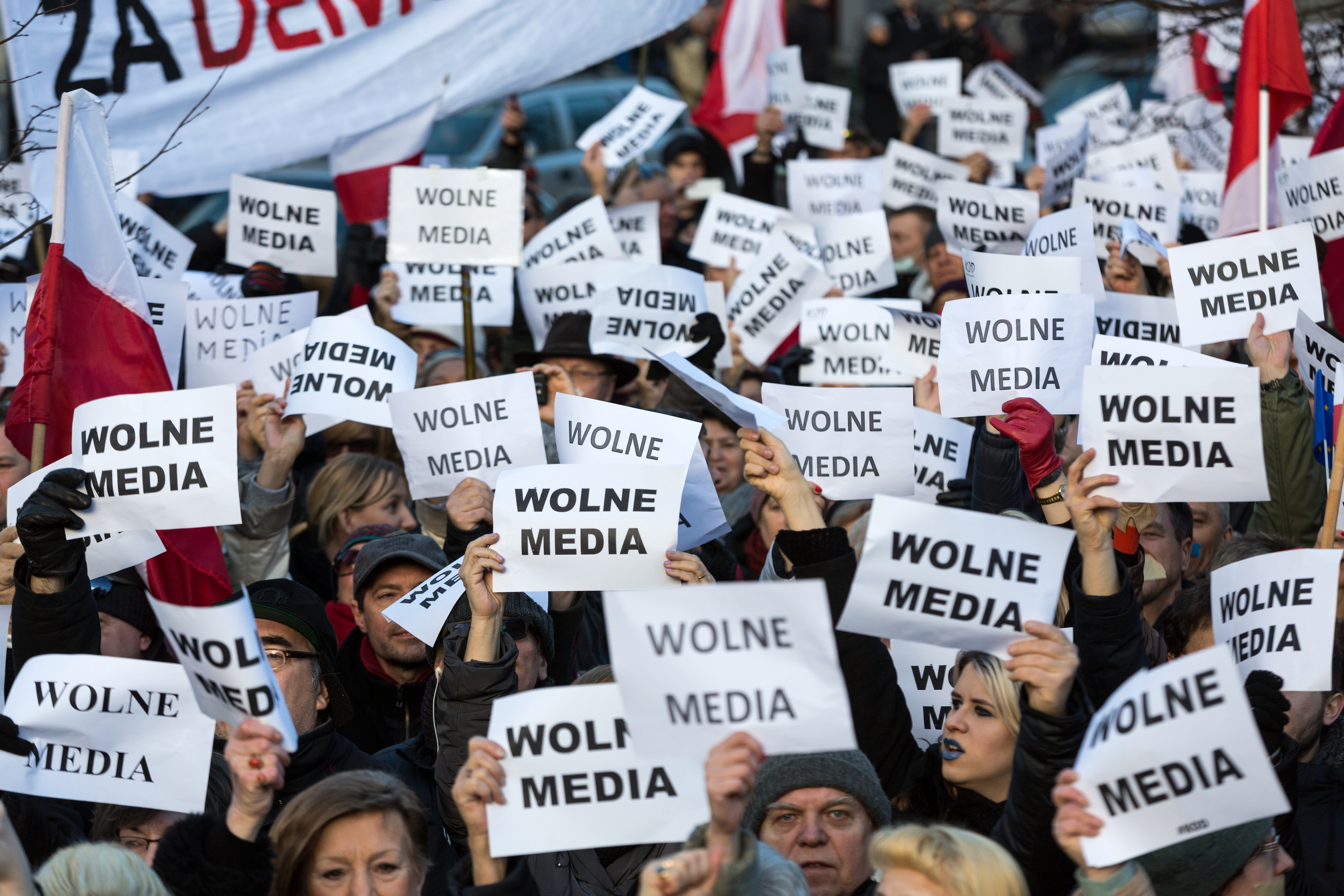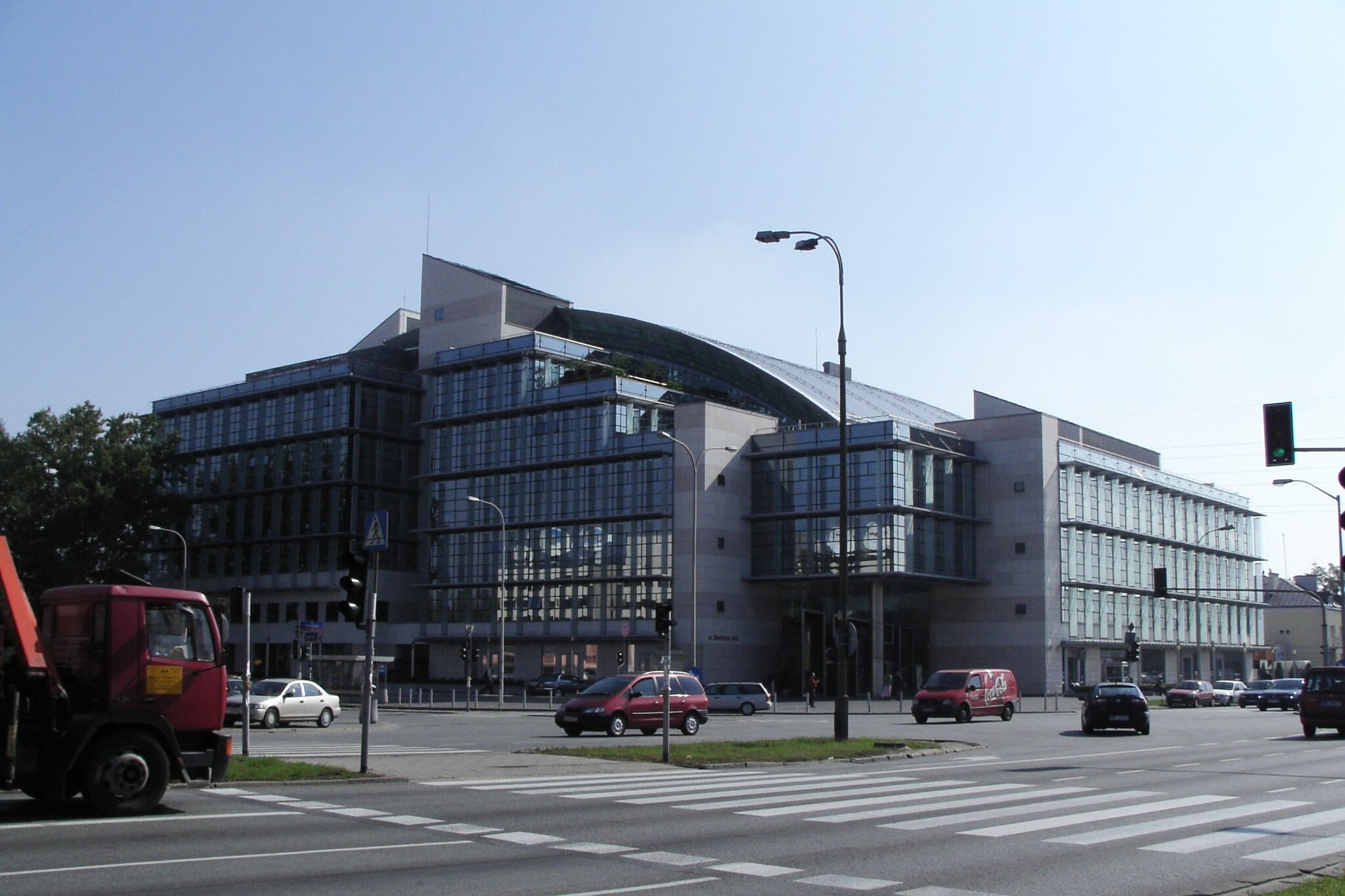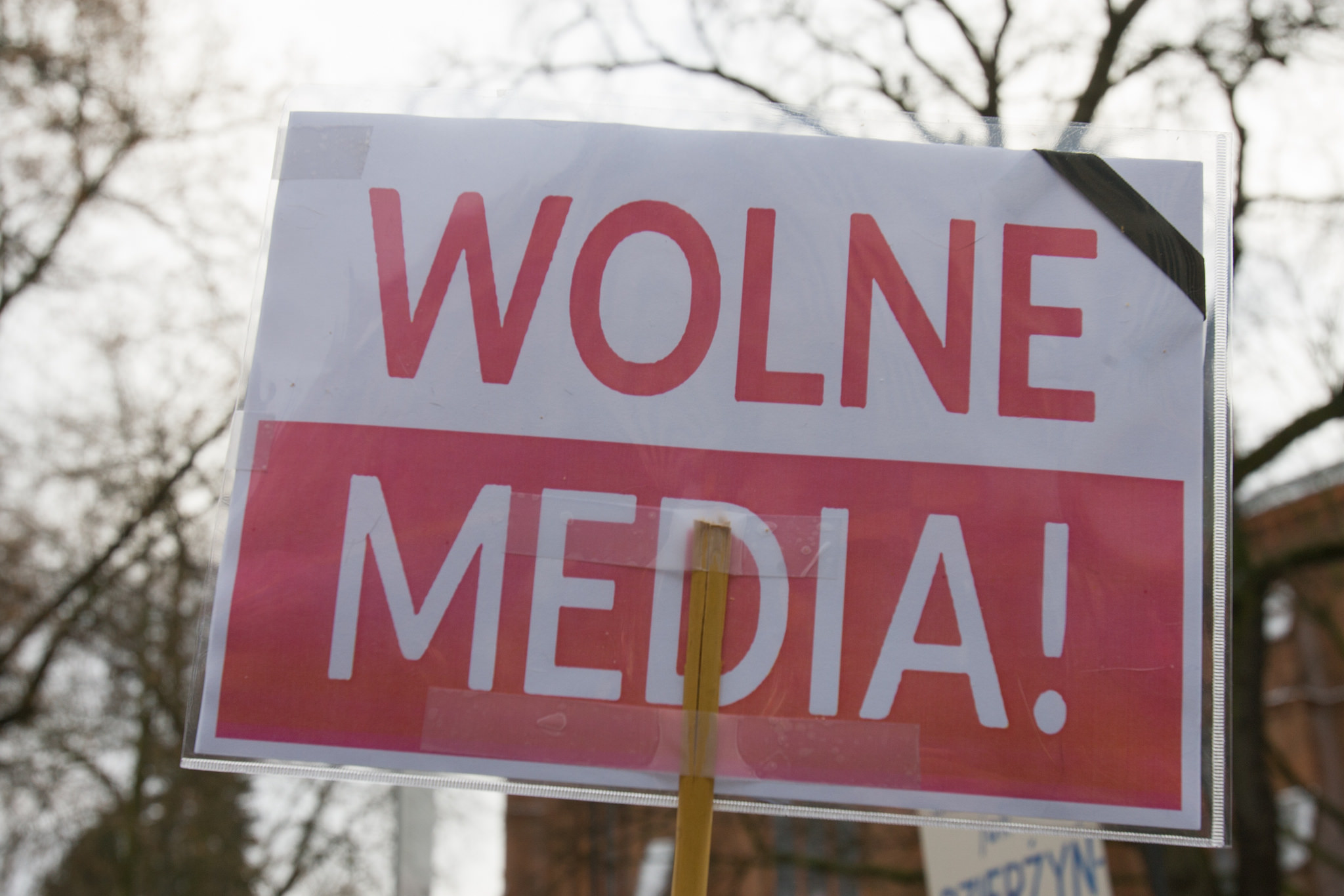By Aurora Herrera
Poland’s ruling Law and Justice Party (PiS) has been voted in for a second term with 43.59 percent of the vote, winning 235 seats. Yet despite Poland being a representative democracy, the party’s strategy to “repolonise” and control the media is deeply undemocratic.
According to this year’s Reporters Without Borders World Press Freedom Index, Poland has fallen from 18th to 59th place in four years. The decline coincides with the rise of PiS and their subsequent media policies from 2015 onwards. After coming to power, legislation was passed that allowed PiS to appoint and dismiss the executives in charge of public television and radio broadcasters, imposing complete government control on Poland’s pubic broadcaster, TVP.
Ahead of the October 2019 election, PiS proposed a new regulatory framework for the conduct of journalism in its 232-page election manifesto saying that a body would be established to make judgement calls on professional standards, execution of ethics as well as education and entry requirements.
European Federation of Journalists president, Mogens Blicher Bjerregård, commented on the plan saying, “A proposal during the election campaign about [the regulation] of journalism will de facto end press freedom. Journalism is a free profession. All attempt to certificate journalists or to introduce any kind of limitation about who can be a journalist will violate media freedom. The duty of the government should be to protect journalists and give unconditionally full support for media freedom. Then of course it is a duty for journalists and media to take care of ethical standards and self-regulation.”
Members of Poland’s independent media have also said they are being targeted. Investigative journalists have reported being spied on and harassed, with government policies putting undue financial pressure on independent and critical news organisations.
According to data released by Kantar Media, major newspaper Gazeta Wyborcza received approximately $500,000 during the first seven months of 2017. The funding came from state companies and several Polish ministries. Then, one year later the paper saw a reduction of almost 90%, receiving funding of only $53,000.
The research also reflected that the opposite happened to pro-government, right-wing weekly magazine Do Rzeczy, which received a 700% increase in state ad revenue, despite a significant fall in circulation.
The death of public media
“TVP is an extension of the political campaign staff,” said Jan Grabiec, spokesman of Civic Platform, the biggest opposition party. “This has made the campaign unfair.”
TVP is currently overseen by Jacek Kurski, a former PiS MEP who was appointed after the Polish parliament removed senior management. Under his tenure, research has shown that TVP broadcast biased material during the European elections in May. According to the Guardian, research by Poland’s Society of Journalists discovered that out of 105 items about the polls, 69 items featured PiS. Of those 69, 68 were positive and only one was neutral, while all 33 items about the opposition were classed as negative.
A New York Times article focusing on the concerns about the public broadcaster said that TVP “has pushed forward a steady stream of fawning stories about the ruling party. It constantly reminds voters of how much money the government is spending on social programs. It warns that a vote for the opposition would lead to financial ruin for Poland.”
Even the Council of Europe issued a declaration about TVP, quoting the Parliamentary Assembly’s Resolution 2254 (2019) document on freedom of the press as a condition for democratic elections, which Poland adopted:
“TVP before the parliamentary elections still behaves – without hiding it – like a government propaganda channel. This failure of Poland in respecting the principles of the European Council has a negative impact on Poland’s reputation as a democratic member of the RE.”
TVP is also being used to promote anti-LGBTQ and anti-migrant sentiment. Three days before the election, TVP aired a documentary called Inwazja or Invasion, “billed as an exposé of the true and insidious agenda of the LGBT movement, which the station says is to tear down traditional families.”
Independent public media is a fundamental pillar of democracy, with a role to universally inform and provide content for a diverse society and its interests. The co-option of public media by the PiS as well as its wider policy of media capture, pose an existential threat to media freedom, which could have major, generational consequences.
The Public Media Alliance will continue to update on the situation in Poland and any new threats to media freedom and the role of independent media in democracy.
Header Image: Flags of different channels in front of one of the buildings of Polish Television (TVP) in Warsaw. Credit: fotokon/iStock
Related Posts
3rd July 2019
Threats to media independence continue across Central Europe
“Backslide”. This seems to be the word…
6th January 2017
The ongoing struggle for media freedom in Poland
It is just over a year since Poland’s…


